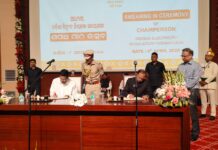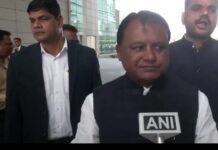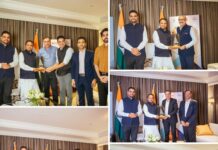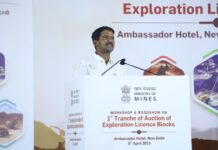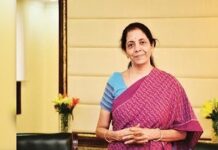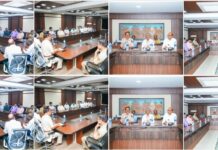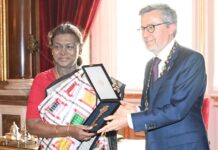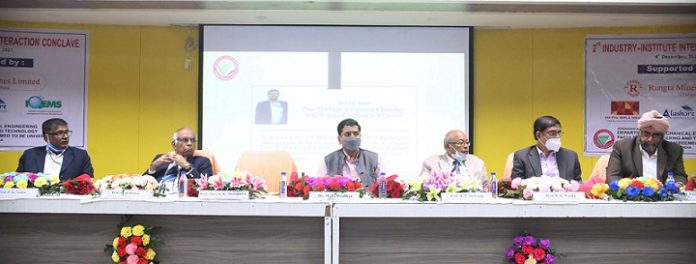By Our Correspondent
BHUBANESWAR: The need for frequent interaction and exchange of ideas between the industry and institutions for the mutual benefit of both was stressed at the 2nd Industry-Institution Interaction Conclave held at Siksha ‘O’ Anusandhan (SOA) here.
“It is a crying need as research in the institutes should match the needs of the industry and industry experts should share their practical experience with the researchers and students on a regular basis,” Dr. Malay Kumar Pradhan, General Manager, Odisha State Disaster Management Authority (OSDMA), said while addressing the inaugural session.
Dr. Pradhan, who was the chief guest on the occasion, emphasized on frequent visit of faculties and students to industries saying it would help them to understand the real life scenario while faculty members should update the industry people about recent researches being made worldwide and encourage thought leadership.
“Professors of institutes and universities can work as external consultants to industry and encourage industry experts to do some deep research,” he said adding students should get opportunity to work on live business cases and provide solutions which could be implemented.
At the same time, industry should extend sizeable financial support to selected research institutes for undertaking research projects, Dr. Pradhan said.He said the Government of India had floated the concept of Vision Zero with the objective of ensuring that no accident or incident occurred in any industry. The idea needs collaboration between academia and industry to be successful, he said.
Industry professionals, academicians and engineering students participated in the day-long conclave organised by the Department of Mechanical Engineering of Institute of Technical Education and Research (ITER), SOA’s faculty of engineering and technology.
SOA Vice-Chancellor Prof. (Dr.) Ashok Kumar Mahapatra chaired the inaugural session which was also addressed by Chairman of SOA’s Advisory Board Prof. Damodar Acharya, former Vice-Chancellor and presently Chief Consultant of SOA Prof. Rajendra Prasad Mohanty, Pro-Vice Chancellor Prof. Pradipta Kumar Nanda, Chief Operating Officer of Paradip Phosphates Ltd (PPL) Mr. Ranjit Singh Chugh and Dean of ITER Prof. Pradip Kumar Sahoo.
Delivering the keynote address, Prof. Mohanty said mutual collaboration between industries and institutes would lead to a win-win situation for both while pointing out that academic institutes were the agents of social change.
These institutes prepare future leaders for industrial production while contributing to the larger global community and sharing the benefits that educated people bring for the welfare of the human system, Prof. Mohanty said.
Prof. (Dr.) Mahapatra underlined the need for change in curriculum saying students needed internship in industries.
Prof. Acharya said the primary job of an educational institution was to supply trained manpower to the industries. The institutes should keep in mind the requirement of industry while keeping pace with the changes happening while industry should take the responsibility of making the students learn the skill sets through training which the institute could not provide, he said.
“The institutes should not also think that they know everything as technology was changing fast,” Prof. Acharya, former Chairman of AICTE and former Director of IIT-Kharagpur, said.
It was the institutes which should take the first step towards collaborating with the industries as it would be a win-win situation for both, he said.
Mr. Chugh agreed with other speakers saying it was the responsibility of both industry and academia to shape the minds for the future. “We are on the cusp of the fourth industrial revolution and it was high time for both industry and institutions to come together at a time when disruption was being witnessed with new technology charting a new path for the future. “For example, we are witnessing disruption in energy generation as fossil fuel is making way for solar energy. Students should be part of this disruptive change,” he said.
The necessity and inter-dependence between industries and institutes must be understood and students must be exposed to newer technologies and engineering methodologies, Prof. D.N.Thatoi, Head of the Department of Mechanical Engineering, ITER, said.
Around 50 industries from all over the state representing steel and manufacturing and automobile industries and safety and boiler divisions, participated in the conclave, Dr. S.S.Mahapatra, Convenor of the conclave, said.


